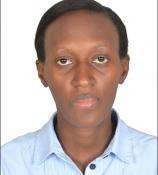
Undernutrition is still today a major challenge and remains as one of the world´s most serious health problems and contributor to child deaths. Given the complexity of undernutrition condition, Undernutrition Programme is therefore designed harnessing interdisciplinary approach with a particular focus on children and their mothers. The programme is implemented by the University of Rwanda in collaboration with other 5 Swedish Universities namely the University of Gothenburg, Lund University, Swedish University of Agricultural Sciences (SLU), Umeå University and Södertörn University. The Main contributions of the programme are strategic interventions and inclusive innovations targeting families; mothers and children at risk of undernutrition and specifically stunting, based on an analysis of needs, demands and opportunities.
The Programme is planned as four interlinked research projects combining Health issues, Agricultural practices and Environmental matters, with Geospatial Information Technology, Innovation opportunities and Gender theory and analysis as cross-cutting themes. The Programme facilitates the training of 7 PhD students in sandwich mode and 5 post docs in an interdisciplinary collaboration between health, agriculture, environment/GIS/ICT and innovation with a large number of senior researchers from various fields of science at UR and 5 Swedish universities. Single courses for Masters and PhD level will be developed on topics related to the research undertaken. The research programme contributes to the implementation and management of Rwanda´s cross-sectoral Nutrition and Food Security policy, Poverty Reduction strategy and connected initiatives.
The overall objective of the proposed research training programme is to contribute to reducing undernutrition in children and their mothers in Rwanda by identifying its main risk factors, and to implement and evaluate relevant interventions at the local community level, such as introducing an electronic Medical Birth Register and trying out a community intervention in the form of a participatory research approach to project planning related to minimising/eradicating undernutrition in children and their mothers. A further aim is to develop ICT based tools to render more effective data collections, data entry, analysis and communication of findings where all data will be geo-referenced.






